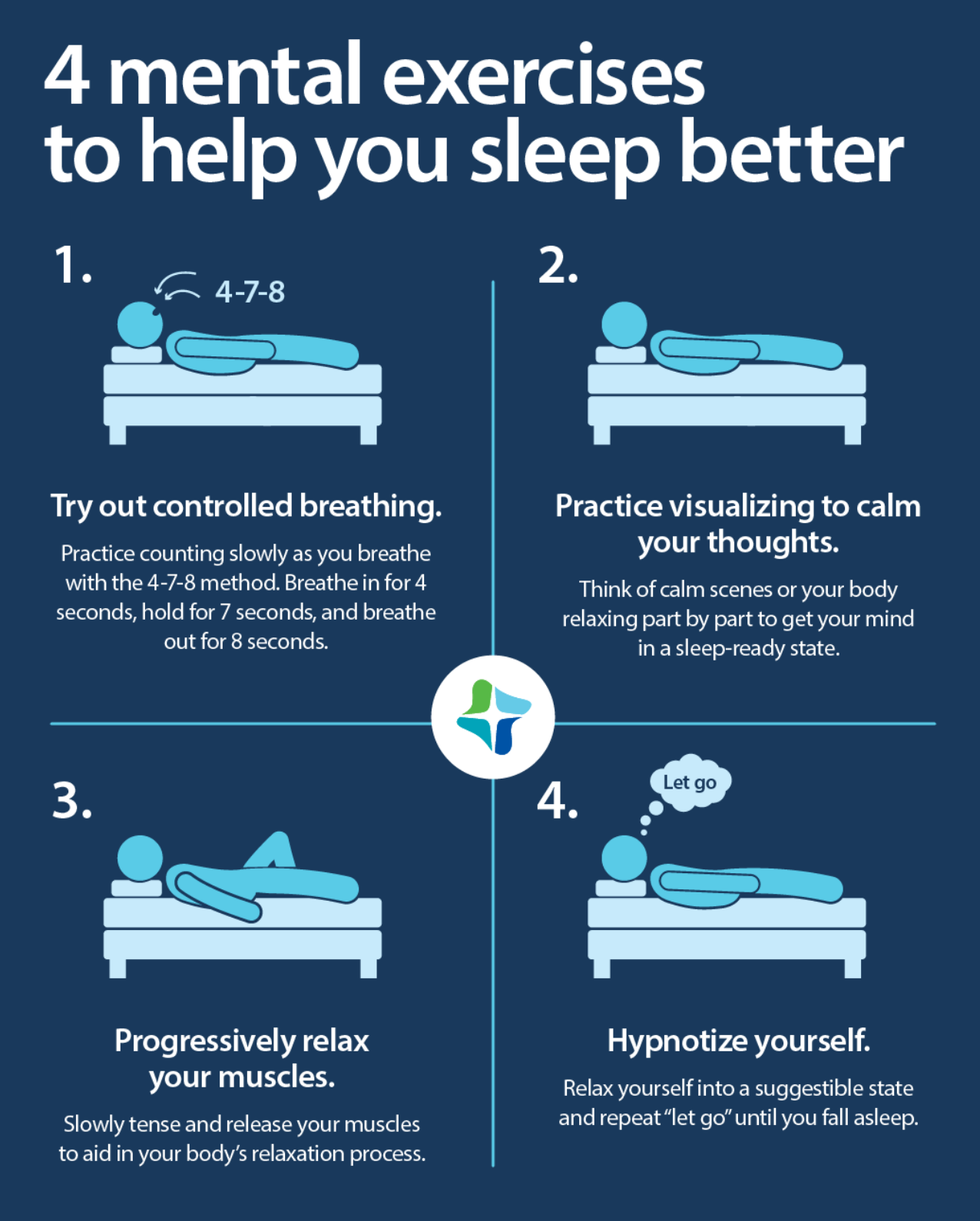The lack of sound sleep sometimes originates from various causes which prevent you from achieving restful night slumber. Numerous reasons including stress conditions and bad routines before sleep time lead to your sleeping troubles. No matter the reason you cannot sleep or rest peacefully during nighttime hours it will surely cause you significant mental anguish.
People typically struggle to sleep when they experience excessive pressure or worrying. The use of relaxation techniques might improve your nighttime sleep quality if this scenario matches your current situation. A variety of programs exists to help your system relax so you should try different methods until you discover one that works.
The following tested strategies will help you relax and get better rest during evenings.
1. Breathing Exercises
The practice of breathing exercises shows effectiveness for treating sleep problems and panic attacks as well as other situations. The proven technique provides results through distracting the mind.
Your heart rate will decrease alongside muscle tension relief while breathing only because this distraction method helps your body relax.
The method does not require any specialized breathing exercise to achieve its objectives. The exercises you use are up to you since they align with the objective.
Any slow, deep breath followed by brief holding and controlled release provides the best results. The best approach is to position yourself in bed before sleep because drifting off could occur.
No particular time duration exists for repeating these exercises. You should repeat the exercise any number of times necessary to achieve your goal.
2. Visualization
Visualization serves as a relaxation tool when it activates your senses to experience things that create comfort and joy.
Your visualized scene will reflect the things which provide the highest possibility of relaxation to you. Several people find relaxation through observing natural landscapes including woodlands and meadow environments. Some people would require both the visual appearance and odor of excellent food for sleep.
Focus your imagination to see peaceful triggers because visualization will enhance relaxation so you can catch better sleep.
3. Herbal Therapy
Some herbal plants provide both relaxation benefits and quality sleep duration. Numerous scientific studies demonstrate that lavender and ashwagandha together with valerian root along with chamomile effectively treat stress and anxiety.
People should drink these herbal teas before going to bed in order to experience their calming effects.
Using marijuana represents a more effective plant-based remedy for your sleep difficulties. Derivatives of marijuana offer effective treatment for sleeping difficulties while providing additional pain relief benefits among other therapeutic uses. The ingestion method for marijuana differs from all previously mentioned herbs as it is not prepared as tea.
The cannabis plant requires drying before consumers use it by smoking. Taking edibles by ingestion represents the most secure method of marijuana consumption since they are straightforward to make. To cook with infused substances you need cannabis oil or alcohol which requires potency calculation as described here.
4. Progressive Muscle Relaxation
Unrelaxed individuals experience tension that leads to severe sleep deprivation because of muscle tension.
Engaging muscles into controlled tensions and subsequent release sessions makes up the practice of progressive muscle relaxation. You learn how to apply tension followed by relaxation of different muscles throughout your body during this method.
By using this technique you will gain body awareness that teaches you how to achieve better relaxation levels.
To assist sleep you should find online PMR training videos but their basic process involves these steps.
- Start by lying down before attempting sleep
- Perform deep breathing by gently inhaling and exhaling air.
- Wild different muscles gradually before releasing each one with each exhalation
- You should begin your relaxation technique by tensing your head muscles and move down to your feet.
5. Hot Shower
Showers at high temperatures provide medicines that reduce anxiety while relieving your muscle tension problems.
A pre-bed hot bath offers relaxation benefits through tension relief while releasing oxytocin which supports stress reduction. Using amazon magnesium flakes in your bathwater will help you relax more before falling asleep.
Cold shower enthusiasts will obtain the same positive outcomes as users of hot showers. Scientific evidence confirms that cold showers deliver relaxation benefits which match those obtained from taking hot showers.
6. Meditation
Through centuries people have recognized meditation as an effective method to achieve both body and mind advantages. You will reach deep relaxation since it calms your mind while eliminating stress.
Mastering this technique requires only basic learning as well as easy implementation. A meditating person will keep their awareness on the current moment and pay attention to their breath instead of thinking about random matters.
The practice provides benefits that include staying calm and being centered so practicing it before bed will help your sleep quality.
Conclusion
The connection between restful sleep quality depends on how well you relax and rest. You should try one or more relaxation techniques due to sleep issues.



